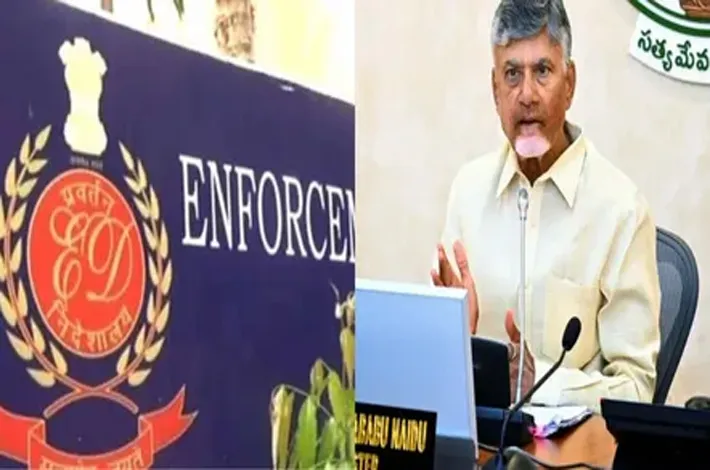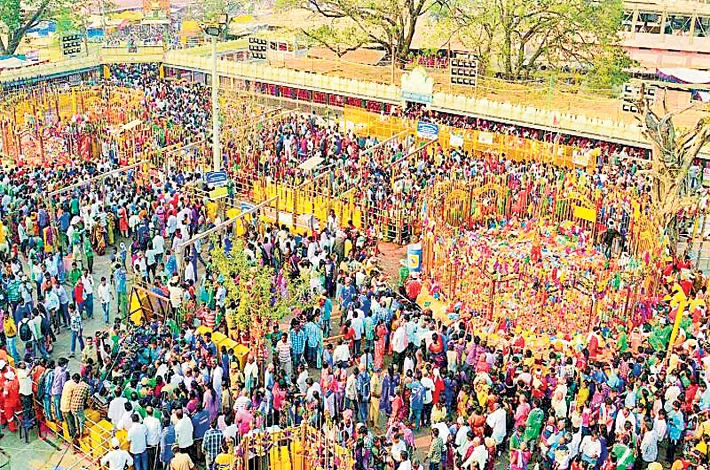The Importance of a Harmonious Husband-Wife Relationship
17-05-2025 12:00:00 AM

Teachings of Kanchi Seer Paramacharya Sri Chandrasekharendra Saraswathi Swamy
The relationship between a husband and wife forms the cornerstone of a fulfilling and meaningful life, not only for the individuals involved but also for the family and society at large. Jagadguru Sri Chandrasekharendra Saraswathi Swamy, fondly known as the Kanchi Seer, Paramacharya, or Maha Periyava, was the 68th Shankaracharya of the Kanchi Kamakoti Peetham.
His profound teachings, rooted in the principles of Sanatana Dharma, emphasize the sacredness of marriage and the pivotal role it plays in fostering spiritual, emotional, and social harmony. Through his discourses, compiled in works like Deivathin Kural (The Voice of God), Paramacharya provides timeless wisdom on nurturing a strong marital bond, underscoring its significance in achieving a purposeful and wholesome life.
Marriage as a Sacred Partnership
Paramacharya viewed marriage not merely as a social contract but as a divine institution ordained by the Vedas. He taught that marriage is a sacred partnership where both husband and wife complement each other to fulfill their dharma (duty). In his discourse on marriage in Hindu Dharma, Paramacharya explains that after completing the stage of brahmacharya (student life), a man takes a wife as a "helpmate" to perform Vedic rites and fulfill his responsibilities toward family and society. This partnership is not limited to mundane tasks but extends to spiritual growth, where both partners support each other in adhering to dharma and progressing toward liberation (moksha).
The Kanchi Seer emphasized that the wife is not merely a companion for household duties or sensual gratification but an equal partner in the journey of life. He likened the husband-wife relationship to the union of Purusha (the cosmic self) and Prakriti (nature), symbolizing balance and interdependence. This sacred bond, when nurtured with mutual respect and understanding, becomes a source of strength, enabling the couple to face life’s challenges together.
Mutual Respect and Selflessness
A key tenet of Paramacharya’s teachings is the importance of mutual respect and selflessness in marriage. He urged couples to transcend selfish motives and cultivate a relationship grounded in love, trust, and sacrifice. In his Dasopadesam (Ten Commandments), Paramacharya advised devotees to lead a life of social responsibility and unconditional love for all beings, principles that are particularly relevant in the marital context. He taught that a husband and wife must prioritize each other’s well-being, viewing their partner’s happiness as integral to their own.
For instance, Paramacharya often highlighted the importance of small acts of kindness and understanding in daily life. He believed that a husband should respect his wife’s contributions to the household and recognize her role in maintaining the family’s spiritual and moral fabric. Similarly, a wife should honor her husband’s efforts and support his endeavors. By fostering an environment of mutual appreciation, couples can create a harmonious relationship that radiates positivity to their children and community.
Shared Responsibilities and Dharma
Paramacharya stressed that marriage is a shared journey where both partners have distinct yet complementary roles. He drew from the Vedic tradition to explain that the husband and wife together perform rituals and uphold dharma, which strengthens their bond and aligns their lives with divine principles. For example, Vedic ceremonies often require the presence of both spouses, symbolizing their unity in fulfilling spiritual obligations. The Kanchi Seer taught that these shared responsibilities foster a sense of purpose and unity, binding the couple in a common goal of living righteously.
Moreover, Paramacharya cautioned against viewing marriage as a transactional relationship. In Deivathin Kural, he addressed modern misconceptions about marriage, urging couples to prioritize dharma over materialistic pursuits. He believed that a marriage rooted in mutual commitment to ethical living and spiritual growth is more resilient to external pressures. By aligning their actions with dharma, couples can navigate conflicts and challenges with patience and wisdom, ensuring a lasting and fulfilling relationship.
Overcoming Passion and Ego
One of Paramacharya’s profound insights was the need to conquer kaama (passion) and ego to maintain a healthy marital relationship. He taught that unchecked passion can lead to discord, as it often stems from selfish desires. In his Dasopadesam, he explained, “Passion is the cause of birth, and time is the cause of death. If there is no passion, there is no production.” By mastering passion and ego, couples can focus on building a relationship based on mutual respect and spiritual alignment rather than fleeting desires.
Paramacharya encouraged couples to practice self-control and mindfulness, ensuring that their actions are guided by love and understanding rather than impulsiveness. He often shared anecdotes of devotees who sought his guidance during marital discord, advising them to approach conflicts with humility and a willingness to forgive. By letting go of pride and cultivating empathy, couples can resolve differences and strengthen their bond.
The Role of Communication and Trust
Effective communication and trust are vital for a successful marriage, according to Paramacharya. He believed that open dialogue, tempered with kindness, helps couples understand each other’s perspectives and resolve misunderstandings. In his discourses, he emphasized the importance of listening to one’s spouse with patience and sincerity, as this fosters trust and emotional intimacy.
Paramacharya also cautioned against harboring secrets or mistrust, as these can erode the foundation of a relationship. He encouraged couples to approach each other with honesty and transparency, ensuring that their partnership is built on a bedrock of mutual confidence. By maintaining open lines of communication, couples can navigate life’s challenges together, drawing strength from their shared commitment.
The Broader Impact of a Strong Marital Bond
Paramacharya’s teachings highlight that a harmonious husband-wife relationship has a ripple effect on society. A stable and loving marriage creates a nurturing environment for children, instilling values of respect, compassion, and dharma. Furthermore, such relationships contribute to the moral and spiritual fabric of the community, as couples who live according to dharmic principles inspire others to do the same.
The Kanchi Seer often spoke of the family as the basic unit of society, with the husband-wife relationship at its core. By upholding their duties to each other and their family, couples contribute to a harmonious and prosperous society. Paramacharya’s emphasis on philanthropy and social responsibility also extends to married life, where couples are encouraged to serve their community together, reinforcing their bond through shared acts of kindness.
Conclusion
The teachings of Paramacharya Sri Chandrasekharendra Saraswathi Swamy offer timeless guidance on the importance of a harmonious husband-wife relationship. By viewing marriage as a sacred partnership rooted in dharma, mutual respect, and selflessness, couples can build a strong and fulfilling bond that withstands the tests of time.
Paramacharya’s wisdom, drawn from the Vedas and his own life of service, reminds us that a successful marriage requires effort, empathy, and a commitment to spiritual growth. As couples embrace these principles, they not only enrich their own lives but also contribute to a more compassionate and dharmic society, fulfilling the vision of the revered Kanchi Seer.








